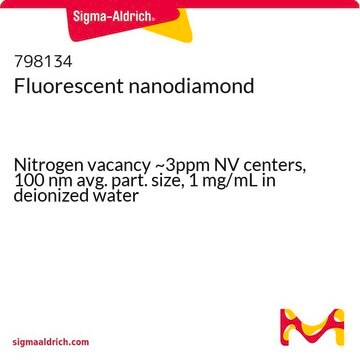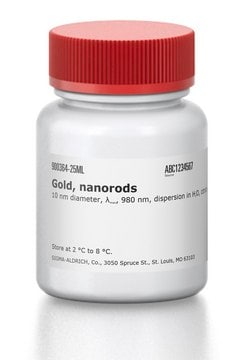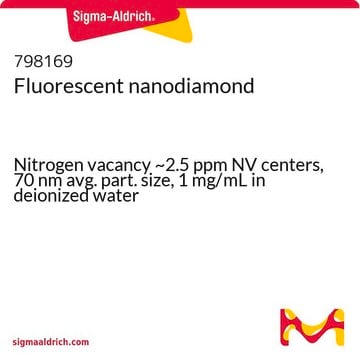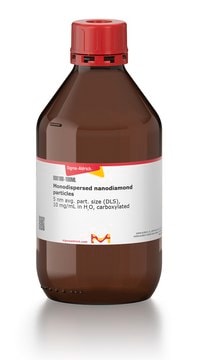905895
Gold nanorods
10 nm diameter, Cy3 and NHS functionalized, powder
Synonym(s):
Cy3 labeled gold nanorods, Cy3 tagged gold nanorods, Dye labeled gold nanoparticles, Fluorescent labeled gold nanoparticles, Au nanorods, Gold nanorod
About This Item
Recommended Products
form
nanorod
powder
storage temp.
2-8°C
SMILES string
[Au]
InChI
1S/Au
InChI key
PCHJSUWPFVWCPO-UHFFFAOYSA-N
Looking for similar products? Visit Product Comparison Guide
Related Categories
Application
Legal Information
Signal Word
Warning
Hazard Statements
Precautionary Statements
Hazard Classifications
Skin Sens. 1
Storage Class Code
13 - Non Combustible Solids
WGK
WGK 1
Flash Point(F)
Not applicable
Flash Point(C)
Not applicable
Choose from one of the most recent versions:
Certificates of Analysis (COA)
Don't see the Right Version?
If you require a particular version, you can look up a specific certificate by the Lot or Batch number.
Already Own This Product?
Find documentation for the products that you have recently purchased in the Document Library.
Our team of scientists has experience in all areas of research including Life Science, Material Science, Chemical Synthesis, Chromatography, Analytical and many others.
Contact Technical Service





